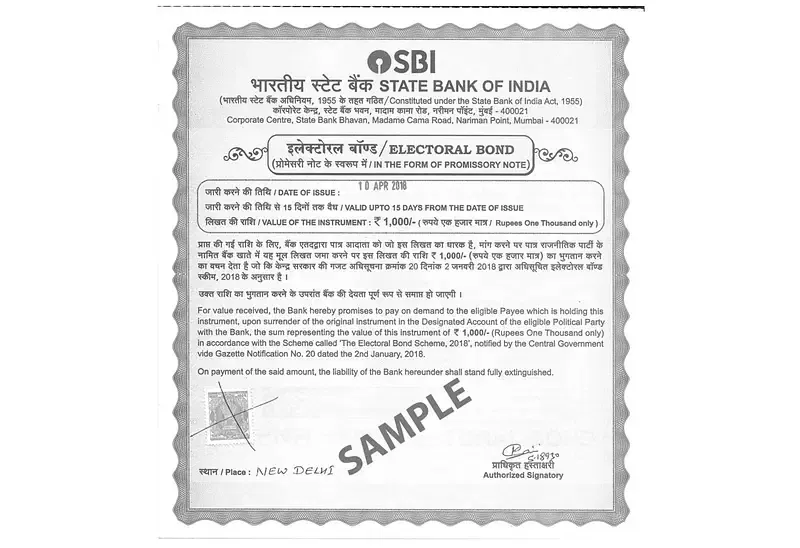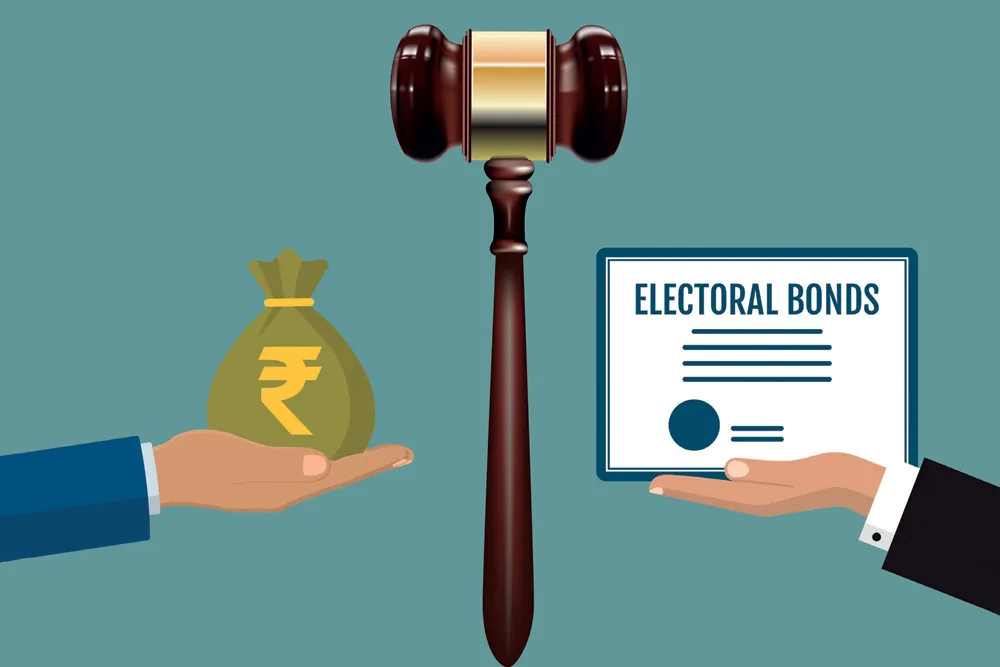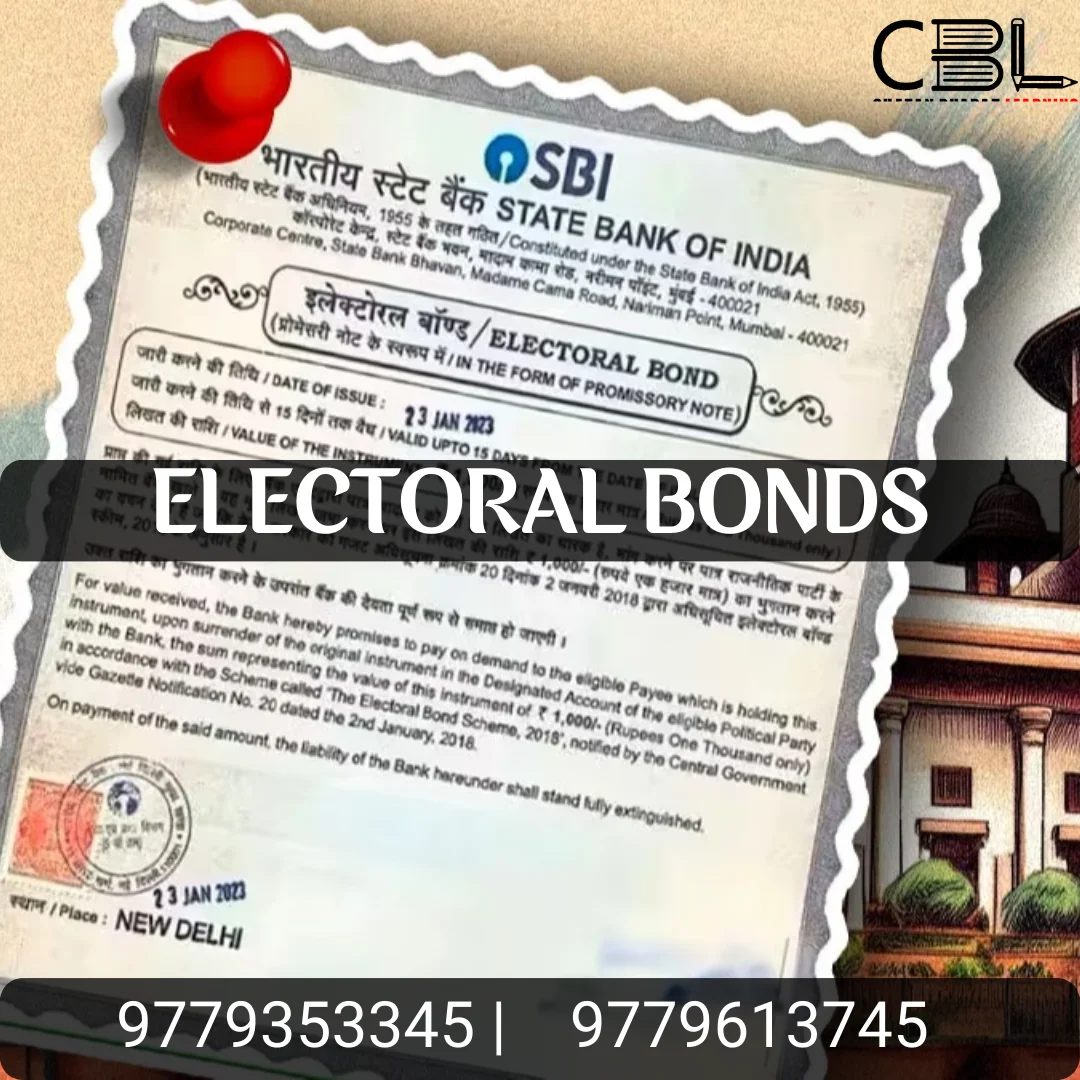What are Electoral Bonds?
- Financial instruments similar to promissory notes.
- Purchased from the State Bank of India (SBI) by individuals or companies.
- Gifted or donated to political parties.
- Can only be cashed by political parties in designated accounts.
- Individuals can buy bonds singly or jointly.
Electoral Bonds Scheme
- Introduced in India in 2018 to reform political funding.
- Aims to enhance transparency in electoral funding.
- Government declared it as an electoral reform to align with a cashless-digital economy transition.

Reasons for Supreme Court’s Decision
- Violation of Right to Information
- Scheme allowed anonymous political donations, infringing on Article 19(1)(a) of the Constitution.
- Right to information crucial for transparency and accountability in democracy.
- Right to Donor Privacy Doesn’t Extend to Contributions
- Large corporate contributions shouldn’t be shielded from scrutiny, considering potential policy influence.
- Rejection of Amendment to Section 29C of RPA, 1951
- Restores transparency by reinstating requirement for parties to declare contributions exceeding ₹20,000 and specify sources.
- Not Proportionally Justified to Curb Black Money
- Curbing black money doesn’t align with reasonable restrictions under Article 19(2) of the Constitution.
- Unlimited Corporate Donations Violate Free and Fair Elections
- Amendment permitting unlimited political contributions by companies deemed arbitrary.

Suggestions for Electoral Funding in India
- Regulation of Donations
- Ban foreign citizens or companies from making donations.
- Impose donation limits to prevent control by large donors.
- Public Funding to Parties
- Introduce democracy vouchers for voters to donate to preferred political parties.
- Balancing Transparency, Anonymity
- Require disclosure of large donations for monitoring flow of money into politics.
- Disclosure Requirements
- Protect donor anonymity to safeguard against retribution or extortion, especially in high-tension political contexts.
Conclusion
- Significant Milestone for Democracy
- Supreme Court’s decision on February 15, 2024, marks a milestone for Indian democracy by striking the Electoral bonds scheme unconstitutional.
- Recognition of Right to Information
- Key to the Court’s decision is its recognition of the scheme’s infringement on the right to information.
- Victory for Transparency and Accountability
- Verdict upholds fundamental principles of transparency, accountability, and the rule of law in India’s democracy.


Leave a Reply
You must be logged in to post a comment.